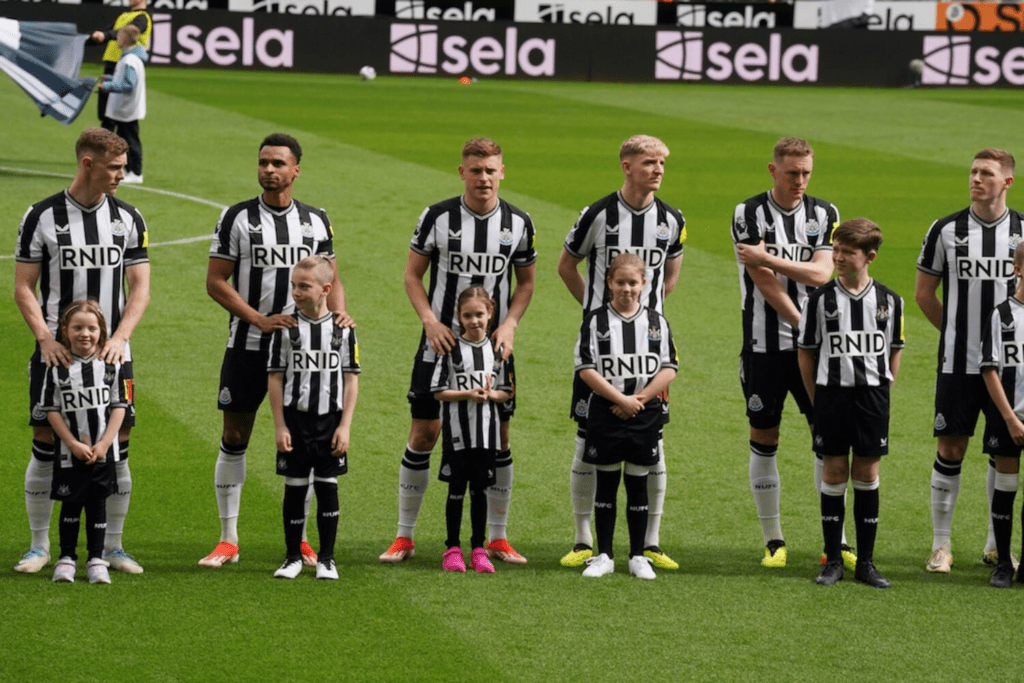Zany: Newcastle United is amazing for doing this. It also doesn’t surprise me that it didn’t happen here first. In America, sports teams are basically corporations owned by CEOs whose ultimate goal is to make money. The thought of spending who knows how much to benefit fans in the stadium who happen to be deaf is probably a non-starter. It makes me sad to realize how much of our country has been taken over by corporate rule. Regardless, maybe if they approach the idea as a way to bring in even more fans to the stadium… nah, what am I even thinking? Slap me so I come back to reality.
If you’re interested in seeing more sports-related content on Zany Progressive, or if you’re willing to write a sports column for us, leave a comment below or contact us at: careers@zanyprogressive.com.
The roar of the crowd reacting to a match-clinching goal makes for an unforgettable sporting moment – and now deaf fans can ‘feel’ the electric big stadium atmosphere thanks to sensory ‘sound shirts’.
Newcastle United kit sponsor Sela developed the world-first tech alongside the Royal National Institute for Deaf People (RNID) to make live football more accessible to people with hearing loss.
It uses microphones placed around St James’ park to convert noise into digital sound. The data transmits wirelessly to shirts equipped with haptic technology – the same sensory feedback you get from typing on your phone – to recreate stadium noise as touch sensation.
It’s part of the Unsilence the Crowd campaign, an initiative that’s designed to provide an inclusive football experience for deaf fans. It follows research by the RNID which discovered that almost three-quarters of people who are deaf or have hearing loss believe haptics can improve the match-day experience.
Lifelong Magpies fans David Wilson and Ryan Gregson were among the first to road test the kit as they watched their team see off raiders Tottenham in a 4-0 win in April – and declared it a huge win. “For the first time, I felt included 100%,” said Gregson, speaking through a sign language interpreter. “To experience the noise through vibration was just wonderful.”
“I’ve never felt anything like it,” added Wilson.
Haptics secreted on different areas of the shirt signify specific crowd reactions. Vibrations in the shirt sleeves mean the home team is singing. Buzzing in the back of the shirt means an away goal. “It was very quiet round the back,” Gregson joked.

Sela, a Saudi Arabian events and marketing company, will now offer the tech at all Newcastle home ties, and hopes more clubs will follow its lead.
“We would welcome the whole football family to join us by adopting the technology. By acting now, we can collectively make watching live football matches an incredible experience for everyone who loves the game,” said Sela VP Ibrahim Mohtaseb.
For the first time, I felt included 100%. To experience the noise through vibration was just wonderful
Teri Devine, director for inclusion at RNID, added: “One in five adults in the UK are deaf or have hearing loss, but people often face barriers in everyday life – including in live sports events. It’s fantastic to see Sela and Newcastle United leading the way in championing this technology which has the potential to have a real and lasting impact on how people who are deaf and have hearing loss experience live sports.”
This article was originally published on Positive.news and was republished here, with permission, under a CC BY-ND 4.0 license. Learn more about third-party content on ZanyProgressive.com.




